Putin suspends nuclear-arms treaty between Russia, US
The Russian President confirmed he would step back from the weapons agreement and recommitted to his invasion of Ukraine.
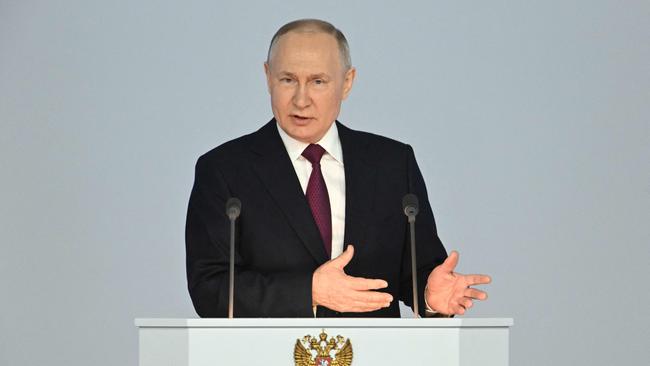
Russian President Vladimir Putin said Moscow would step back from the last remaining major nuclear-arms-control treaty between the U.S. and Russia, and vowed to continue the military campaign in Ukraine as the diplomatic gulf widened between Moscow and the West.
Mr. Putin’s move, announced Tuesday during a wide-ranging state-of-the-nation address in Moscow, came hours before President Biden again sought to rally international support for Ukraine in Poland ahead of the first-year anniversary of the invasion, and a day after traveling to Kyiv to meet with Ukrainian President Volodymyr Zelensky.
“Appetites of the autocrat cannot be appeased. They must be opposed,” Mr. Biden said before hundreds of flag-waving Poles and an array of diplomats gathered at the Royal Castle complex in Warsaw. “Ukraine will never be a victory for Russia. Never.”
Besides pausing its involvement in the New START treaty, Mr. Putin said Russia would also stand ready to test new nuclear weapons if the U.S. moved to do so first, bringing into question the survival of a long-running global ban on nuclear weapons tests.
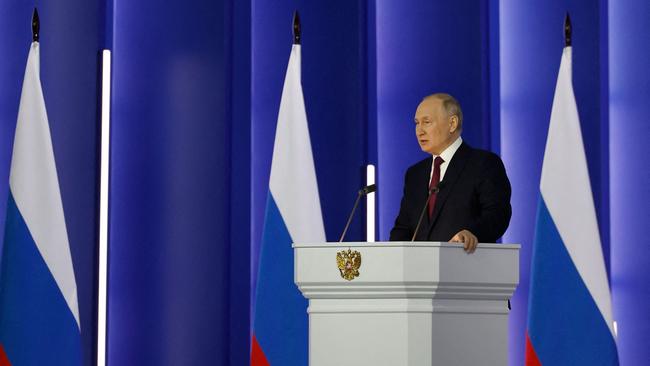
Secretary of State Antony Blinken said that the Russian leader’s decision on the pact “is both really unfortunate and very irresponsible,” while Jens Stoltenberg, secretary-general of the North Atlantic Treaty Organization, warned that the entire arms-control architecture between the two countries had been dismantled. “I strongly encourage Russia to reconsider its decision and to respect existing agreements,” he said.
China, meanwhile, is trying to find a role as a mediator between Russia and Ukraine, with its leader Xi Jinping preparing to visit Moscow for a summit with Mr. Putin in the coming months, according to people familiar with the plan.
Mr. Putin’s remarks on the New START treaty came during a wide-ranging address to Russia’s federal legislature in Moscow ahead of the Feb. 24 anniversary of his invasion of Ukraine. He promised more financial support for Russian veterans and families that had lost loved ones in the fighting. He pledged more social support programs to help Russians through the war, saying that the Russian economy had proven more resilient in the face of international sanctions than many Western countries had predicted.
The Russian leader also again blamed the West for provoking what he calls the “special military operation,” repeating his assertions that the U.S. and its European allies sparked the conflict by trying to draw its former Soviet satellite closer to the European Union and NATO.
“It was they who unleashed this war. We are using force to stop the war,” he said. The West, he added, “is using Ukraine as a battering ram against Russia.”
Mr. Biden rejected Mr. Putin’s assertion.
“The West was not planning to attack Russia as Putin said today, and millions of Russian citizens who only want to live in peace with their neighbors are not the enemy,” Mr. Biden said. “This war was never a necessity. It’s a tragedy.”
Mr. Putin’s move to suspend participation in the nuclear treaty marks a fresh point of contention between Russia and the U.S.
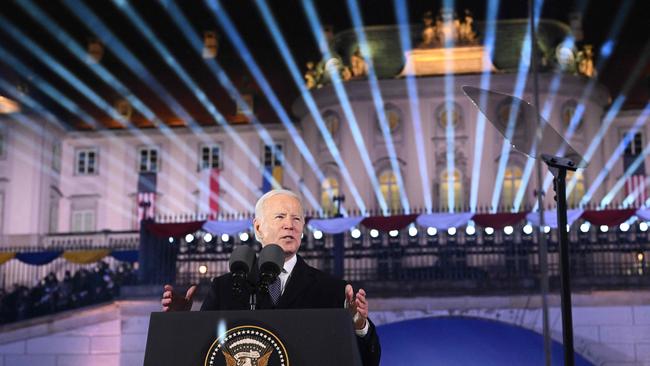
In a report sent to Congress last month, the State Department concluded that Russia had violated the pact to cut long-range nuclear arms by refusing to allow on-site inspections and rebuffing Washington’s requests to discuss its compliance concerns. It was the first time the U.S. had accused Russia of violating the treaty, which came into force in 2011, and came amid worsening tensions between Washington and Moscow over the war in Ukraine.
Sergei Markov, director of the pro-Kremlin Institute for Political Studies, said Moscow’s pause from the treaty wouldn’t likely have dramatic consequences in the short term, but it didn’t bode well for the future.
“If Washington does not listen to Moscow now, this is Putin’s warning that he may withdraw [altogether] from the treaty,” Mr. Markov said. “In a few years, there could be a colossal change that would catastrophically reduce U.S. nuclear security.”
While Mr. Putin’s comments suggested that Russia would continue to deny on-site inspections under the treaty, he didn’t indicate if Russia would suspend compliance with other provisions of the accord by refusing to provide data on its nuclear forces or withholding notification of its missile test launches.
Mr. Putin also complained that French and British nuclear weapons aren’t covered by the New START treaty, though current and former U.S. officials said that the Russian president appeared to be leaving open the possibility that Russia might continue to observe the core provisions of the treaty, which sets limits on the number of warheads on each side and the missiles and bombers that carry them.
Indeed, Russia’s Foreign Ministry later said Moscow would continue to observe limits on the number of nuclear warheads it can deploy under the treaty “in order to maintain a sufficient degree of predictability and stability in the sphere of nuclear missiles.” Russia would also continue to notify the U.S. when it planned to test launch inter-continental ballistic missiles and submarine-launched ballistic missiles, the foreign ministry said.
The main consequence of Mr. Putin’s stance might be to add obstacles to any effort to negotiate a follow-on accord after New START expires in February 2026.
“Putin’s announcement makes it far more likely that after New START expires, there will be no agreement limiting U.S. and Russian strategic nuclear arsenals for the first time since 1972,” said Daryl Kimball, executive director of the Arms Control Association, a Washington-based organization that supports arms control agreements.
Mr. Putin’s address appeared designed in part to shore up domestic support for the campaign in Ukraine, the boldest military operation ordered by the Kremlin since the Soviet Union attempted to occupy Afghanistan in the late 1970s and 1980s. But as was the case then, the invading forces met fierce resistance and lost around half the territory they had gained in the early stages.
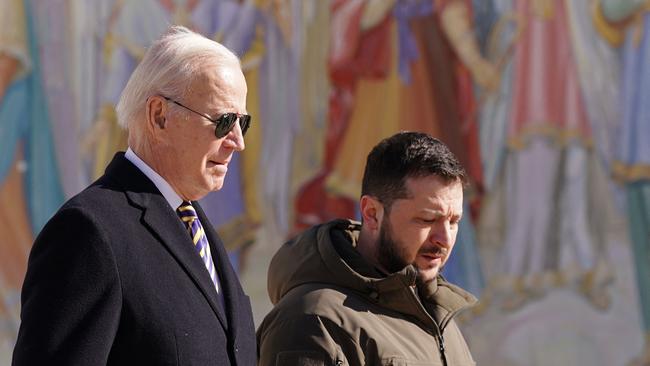
The Russians’ latest attempt to gain ground, in the eastern Donbas area, around the city of Bakhmut, has again stalled amid heavy fighting. Western countries estimate that hundreds of thousands of soldiers have been wounded or killed since the war began, and with each side fighting hard for every inch on the battlefield, peace talks appear to be a distant prospect. Ukraine is appealing for more Western weapons, while concern is growing among some Russians that more troops could be drafted after 300,000 reservists were mobilized last fall.
With the conflict deepening, China says it wants to play a more active role in ending the conflict.
Western capitals have expressed skepticism about China’s initiative, the broad outlines of which were first previewed last week by Beijing’s top diplomat, Wang Yi, at a security conference in Munich, Germany.
Ukrainian Foreign Minister Dmytro Kuleba, speaking at NATO headquarters on Tuesday, said he had met with Mr. Wang and heard key elements of China’s plan, but warned that preserving Ukraine’s territorial integrity would need to be a cornerstone for it to succeed.
Any public shift toward a more neutral stance would represent a significant change for Beijing. Messrs. Xi and Putin met weeks ahead of the war on the sidelines of the Winter Olympics in China, issuing a joint statement challenging the U.S.-led world order and declaring a “no limits” friendship.
Beijing has since provided diplomatic support to Moscow and an economic lifeline amid Western sanctions. China has bought up Russian oil and gas and sold microchips and other advanced technologies that have military uses. Mr. Blinken, the secretary of state, also said over the weekend that China was considering providing arms to Russia, a step he warned against taking. China’s Foreign Ministry countered Monday that the U.S. is the country that has been supplying weapons for the war.
WSJ

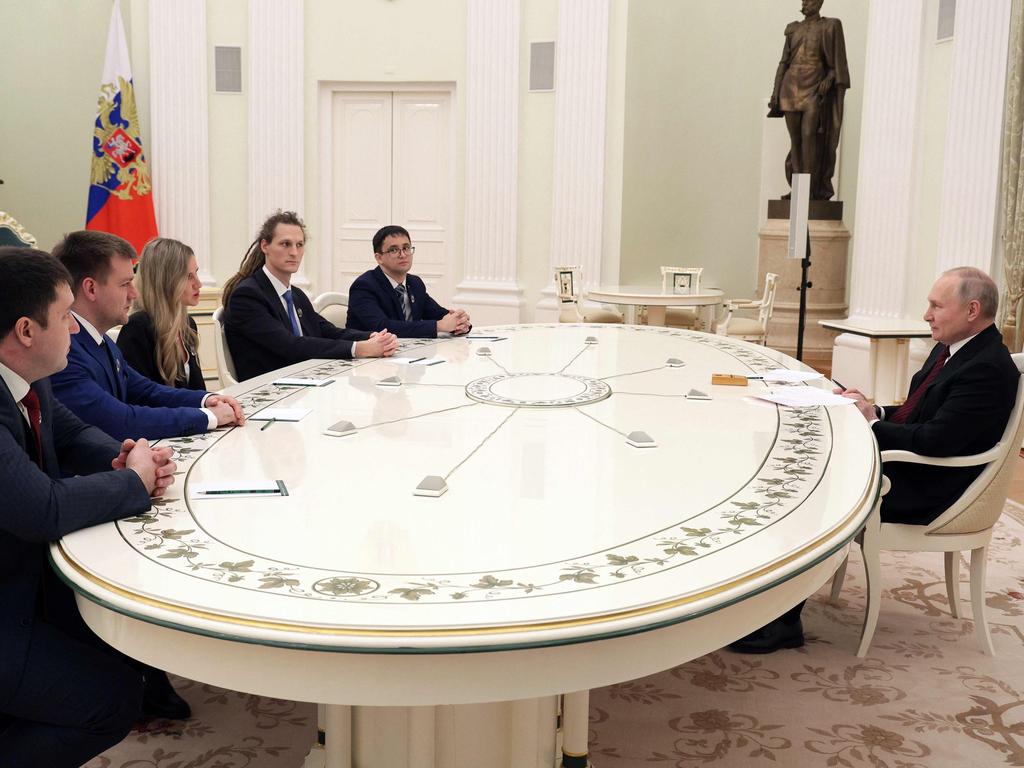

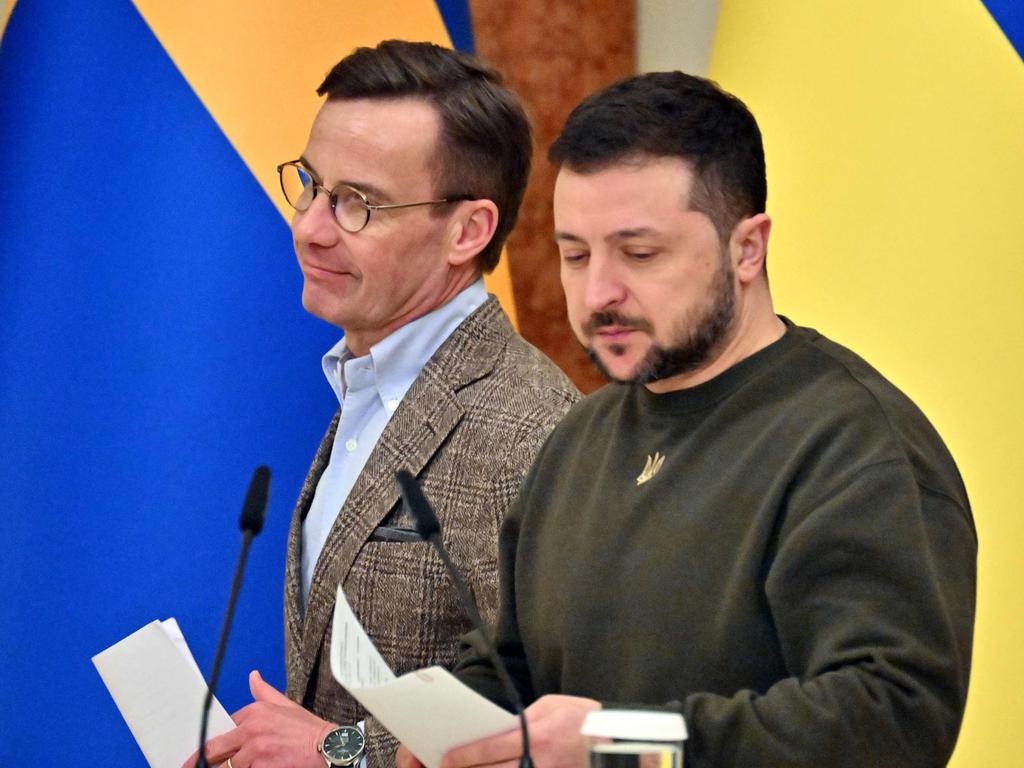



To join the conversation, please log in. Don't have an account? Register
Join the conversation, you are commenting as Logout